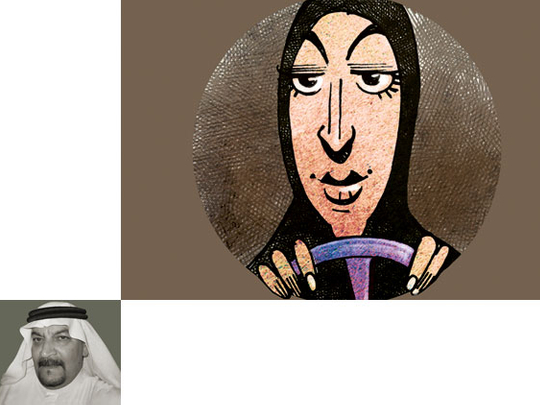
To many devout Muslims the world over, certain fatwas released by Islamic clerics in recent times have severely taxed their sensibilities. The western press picks upon such edicts with front page headlines depicting them as ‘barbaric', ‘shocking', ‘bizarre', or even ‘absurd'. Some of these edicts also make their way as humorous skits on late night television around the world.
One of the latest such edicts that have created a lot of international media mileage is the recent ‘scientific' report prepared by Kamal Sobhi, a former Saudi professor working with Muslim scholars in Saudi Arabia's highest religious council. The report was reportedly delivered to the entire Shura Council body, 150 strong. The report assessed the possible impact of repealing the ban off allowing women to drive in Saudi Arabia, the only country in the world where such restrictions exist.
As a result of the study, it was feared there would be "no more virgins" if the female drive ban is lifted, and relaxing the ban would also see more Saudis of either sex deviate towards homosexuality and pornography. It states that allowing women to drive would also "provoke a surge in prostitution and divorce". And so confident were the authors of the report, they predicted that within ten years of the ban being lifted, there would be "no more virgins" in the country.
In justifying his claims, Sobhi points to the moral decline where women are allowed the privilege of driving themselves. He describes such depravity through a personal incident that happened to him while he was sitting in a coffee shop in an unnamed Arab state. "All the women were looking at me," he wrote. "One made a gesture that made it clear she was available. This is what happens when women are allowed to drive." It would have been more interesting had he described exactly the mechanics of that particular gesture.
And out of Cairo comes a report that an Islamic cleric residing in Europe released an edict stating that women should not come in contact with bananas and cucumbers to prevent any sexual thoughts. The shaikh was quoted as saying that if women wanted to eat these food items, a related male family member such as a father, brother or husband should bring it to them already cut up in small pieces.
He added that these fruits and vegetables "resemble the male penis" and thus could arouse women or lead them into sexual thoughts. Carrots and zucchini should be similarly considered as part of the list of forbidden foods for women to handle in their natural state. When asked how such controls would apply to women out shopping in the vegetable section of a supermarket for their family without holding and inspecting the goods, the shaikh answered saying this matter was between them and God. In answering another question about what to do if women in the family like these foods, the shaikh opined that it was best to take the food and cut it for them in a hidden place so they couldn't see it in its natural state.
This edict has rightfully stirred a storm of criticism among Muslims, with the majority mocking the cleric and saying that such religious leaders only served to give Islam a bad name. One online reader claimed that the shaikh was retarded and should quit his post immediately, while another charged him as a "seeker of fame". Another said only those who foster "evil or immoral thoughts" could think up of such a thing. There have been no official responses from renowned Islamic scholars on this edict yet.
Now getting back to the driving and virginity issue, was the scientific report forwarded to the country's legislative body based on quantitative polls which did indeed indicate that Muslim women in countries worldwide had indeed lost their virginity upon acquiring a driving licence and getting behind the wheel? And was it proven beyond a certainty of doubt that once a driving licence is in possession, prostitution, homosexuality and divorce are to follow? If that is the case, it would add to the credibility of the authors, and such a statistical study should be published to refute all these media allegations of "bizarre and barbarity".
The report hasn't gone down well with some Saudi males and females who have dismissed it as yet another attempt to subjugate the rights of women, this time by injecting the morality factor. They also see such claims as an affront to the virtue of Muslim women in other countries who do indeed drive, saying that such claims insult Muslim women world-wide and make a mockery of our religion on the international arena.
Why do such extreme fatwas always seem to concern women's rights they wonder, particularly when Islam is so tolerant on that issue? Then there are others who resent such attempts from what they believe is a marginalised segment of the population to introduce their own extreme views in an attempt to make them part of the law.
For confused Muslims, I suppose good judgement and common sense should be the order of the day when it comes to dealing with such fatwas.
Tariq A. Al Maeena is a Saudi socio-political commentator. He lives in Jeddah, Saudi Arabia.









